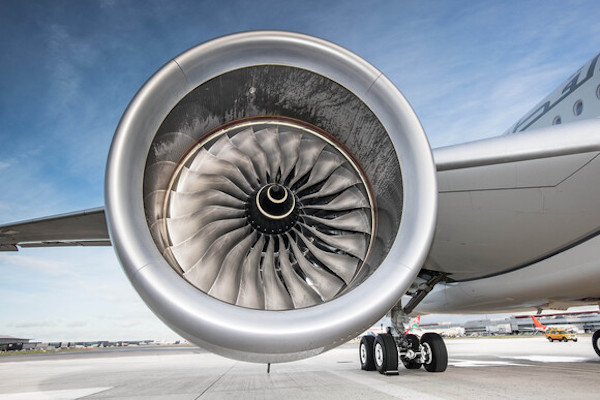The transport sector is taking significant steps towards sustainability, with the government pledging support for the aviation industry’s sustainable growth. Transport Secretary Louise Haigh outlined new measures during the Farnborough International Airshow, emphasizing the importance of sustainable aviation fuel (SAF) in achieving these goals.
Haigh announced a mandate requiring 10% of aviation fuel to be sustainable by 2030, with appropriate incentives to ensure compliance. However, industry leaders are calling for further government action to support this initiative.
Government Commitments to Sustainable Aviation
The transport secretary, Louise Haigh, addressed aviation leaders at the Farnborough International Airshow, affirming the government’s commitment to supporting sustainable aviation growth. She emphasized the new mandate for sustainable aviation fuel (SAF), requiring 10% of UK aviation fuel to be SAF by 2030. This mandate includes ‘appropriate buy-out prices’ and incentives to help reach these ambitious targets.
Haigh stated, ‘We are serious about helping aviation grow sustainably, ensuring it continues to create jobs, facilitate trade, and power our economy.’ She reassured industry figures that aviation is crucial for economic growth, clean energy, and community support.
Industry’s Call for More Government Support
Luis Gallego, chief executive of International Airlines Group (IAG), called for more substantial government backing to scale up SAF production. He stressed that government support is essential to provide price certainty for investors in SAF. ‘We urgently need producers to scale up the supply of SAF,’ Gallego stated.
Gallego welcomed the government’s commitment in the King’s Speech to introduce a revenue certainty mechanism for SAF but highlighted the necessity for stronger backing.
Challenges and Promises at the Industry Roundtable
At an industry roundtable, Louise Haigh promised to replace short-term thinking with a clear national renewal plan, positioning transport as central to this strategy. She underlined that the aviation sector’s involvement is vital for achieving economic and environmental goals.
Haigh addressed potential investors in UK SAF production, highlighting the need for ‘certainty of demand, certainty of revenue, and certainty of government’s commitment.’ She acknowledged the recent political instability but expressed hope with the current political mandate.
She described the SAF mandate as a crucial first step, with the government aiming to further reinforce its commitment through primary legislation for a SAF revenue certainty mechanism in the current parliamentary session.
Economic and Employment Impact of SAF
Haigh projected significant economic benefits from the SAF industry, estimating an addition of nearly £2 billion to the economy by 2030, supporting up to 10,000 jobs. ‘By 2030, the SAF industry could add nearly £2 billion to our economy, supporting up to 10,000 jobs,’ she stated.
Gallego underscored the necessity of scaling up SAF production to meet the industry’s needs and welcomed the government’s commitment to a revenue certainty mechanism. Nevertheless, he reiterated the importance of substantial government backing to provide the required price certainty for SAF investors.
Government’s Long-term Vision for Aviation
The transport secretary outlined a vision for a sustainable aviation sector, with transport policies that support long-term economic and environmental objectives. She highlighted the importance of SAF as part of this vision, with the government committed to overcoming investment barriers.
Haigh assured the industry of the government’s dedication to creating a supportive environment for SAF production and investment, bolstering the UK’s position in the global aviation market.
This long-term vision aims to position the UK as a leader in sustainable aviation, encouraging innovation, economic growth, and environmental sustainability through robust government policies and industry collaboration.
Industry’s Response and Expectations
Industry leaders, including Gallego, have acknowledged the government’s steps towards supporting SAF but emphasize the need for immediate and robust action. ‘We welcome the government’s commitment but need immediate action to scale up SAF production,’ Gallego mentioned.
The aviation sector is cautiously optimistic, recognizing the potential for SAF to revolutionize the industry. However, leaders call for comprehensive governmental support to ensure the successful implementation of SAF mandates.
The government’s commitment to sustainable aviation is a crucial step towards environmental responsibility and economic growth. With significant investment and robust policies, the aviation sector can achieve its sustainability goals.
Industry leaders agree that the path to sustainable aviation requires unwavering government support and immediate action to scale up SAF production, ensuring a successful transition to cleaner energy. The collaboration between the government and the aviation industry will be essential in driving this transformative change.

